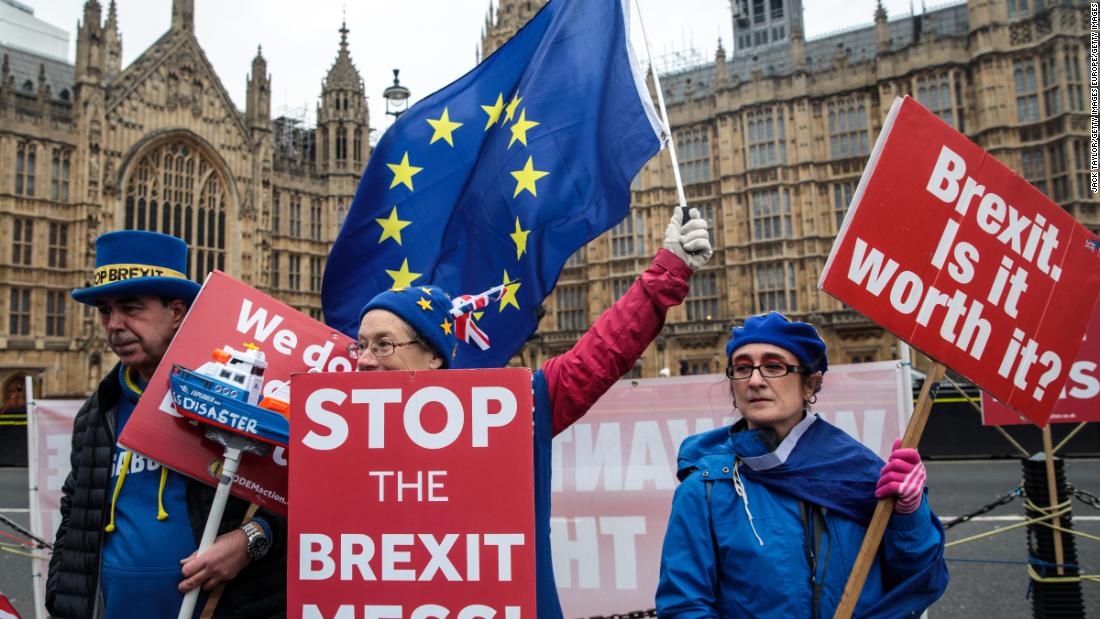While 27% of respondents want a much closer relationship with the aim of reintegrating and 22% want a closer relationship, but to remain outside the bloc, 12% want to move further away from Europe. Of the 24% of respondents who approved the deal, they did so with an important caveat that it was the best deal for the “foreseeable future”. About 15% of respondents said they did not know.
The survey, carried out in the week following the deal’s entry into force on January 1, is the first major temperature check on what the British think of the reality of Brexit. Although the UK formally left the EU on 31 March last year, the transition arrangements ensured that few consequences would change by the end of December.
But since then, trade between Britain and Northern Ireland has been disrupted, the UK financial markets have lost business to continental Europe and British exporters have been forced to watch fresh produce rot as new trade barriers have prevented exports to reach European markets on time.
British sentiment towards Europe remains difficult to undo. Overall, attitudes have softened over the past 12 months. Although only a minority wish to return to the bloc, most respondents said they saw the European Union as a more important international partner for the United Kingdom than the United States.
And while many younger, metropolitan voters are more pro-European than older voters, the report notes that more than a quarter of respondents who voted to leave the EU describe themselves as “European”.
The survey, which was conducted on behalf of the BFPG by researcher Opinium, asked 2,002 British citizens questions ranging from what they thought of Johnson’s Brexit deal to how much they really cared about the so-called “special relationship” with the United States .
The majority of respondents gave a positive opinion that the UK should be active on the world stage, especially in areas that Johnson says are a priority for his government. Johnson has made it clear that he wants to use his G7 presidency this year, as well as the UK’s position as host of the United Nations Climate Change Conference, to make a statement on Britain’s post-Brexit commitment to the international order.
Uncomfortable for Johnson, the report also reveals challenges to his “global Britain” agenda among British voters. The prime minister has long argued that a Brexit advantage would be the freedom to pursue independent foreign policies on trade, environmental issues, national security, normal leadership and foreign aid.
In fact, the majority believes that UK spending on foreign policy should be maintained or increased, supports a multilateral approach to climate change and would like Britain to demonstrate moral leadership.
But when it comes to international relations in the round, Johnson falls short of a sound endorsement: 49% of respondents said they did not trust the UK government in foreign policy, compared with 39% who did. About 12% did not know. It may also alarm Johnson to find that the voters he sidelined from other parties to deliver his 2019 victory – with his promise to “end Brexit” – are the most isolationist.
However, she adds: “I am optimistic that a single project in a generation to bring the country together around a common vision of the UK’s role in the world can succeed, but it will be hard work to realize that ambition.”
The report, perhaps unsurprisingly, paints a picture of a nation coming to terms with the most significant change in its internal and external agenda in decades, without knowing what its next steps would be. And for many, it will confirm the view that the 2016 vote to leave the EU created a new division in British politics that is far from being overcome.
